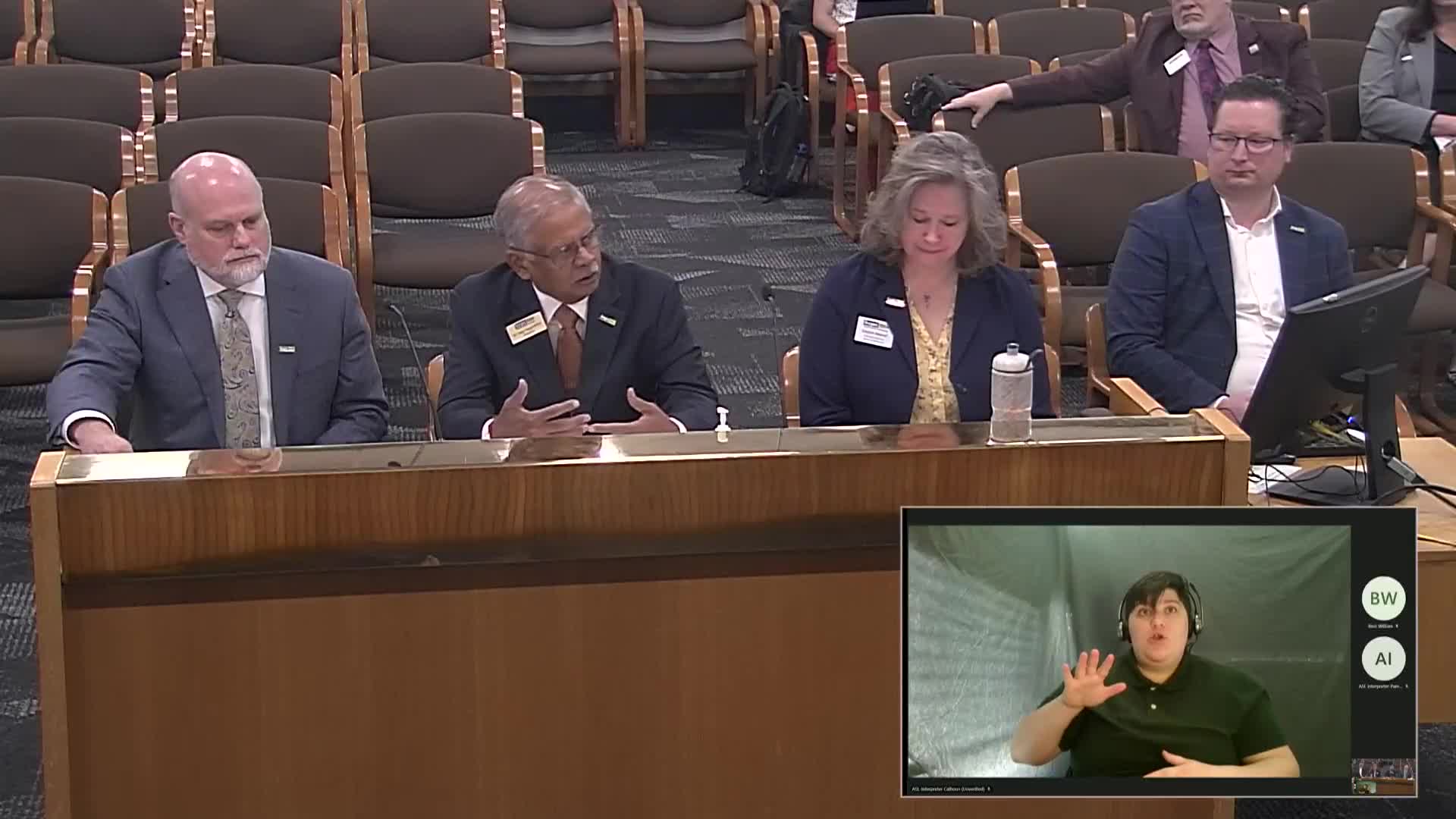Medical School Innovates with $36M AI and VR Training Simulation Center
April 17, 2025 | Higher Education, House of Representatives, Committees, Legislative, Oregon
This article was created by AI summarizing key points discussed. AI makes mistakes, so for full details and context, please refer to the video of the full meeting. Please report any errors so we can fix them. Report an error »

In a vibrant discussion at the Oregon Legislature's House Committee on Higher Education and Workforce Development, the transformative potential of artificial intelligence (AI) in medical education took center stage. As committee members gathered on April 17, 2025, the conversation highlighted how technology is reshaping learning experiences for students in unprecedented ways.
One speaker passionately described a groundbreaking immersive simulation center built for $36 million, designed to enhance the teaching of anatomy and physiology through virtual reality. This facility represents a significant investment in educational innovation, allowing students to engage with complex subjects in a more interactive manner. The speaker emphasized that, unlike traditional methods, today's students can utilize affordable AI tools to tailor their learning experiences. For instance, they can generate quizzes that adapt to their knowledge level, a stark contrast to the past when students had to rely on existing materials to assess their understanding.
The speaker recounted a personal experiment with an AI tool, demonstrating how it could create quizzes for different levels of medical training, from a non-medical professional to an attending physician. This adaptability not only enhances learning but also empowers students to take charge of their education in ways that were previously unimaginable. "We have to rethink higher education," the speaker urged, advocating for a shift towards integrating AI into curricula to improve outcomes and accelerate learning.
The meeting also touched on legislative developments, including House Bill 2649, which proposes allowing technical and regional universities to establish cooperative programs with East Asian countries. This bill aims to adjust tuition rates for qualifying international students, making education more accessible and fostering global partnerships. The speaker, who had recently participated in a delegation to Taiwan, expressed optimism about the potential benefits of such collaborations for Oregon's educational landscape.
As the committee wrapped up, it was clear that the intersection of technology and education is not just a trend but a necessary evolution. With a commitment to innovation and community engagement, Oregon's higher education institutions are poised to lead the way in preparing students for a rapidly changing world. The discussions from this meeting signal a promising future where learning is not only more effective but also more inclusive and globally connected.
One speaker passionately described a groundbreaking immersive simulation center built for $36 million, designed to enhance the teaching of anatomy and physiology through virtual reality. This facility represents a significant investment in educational innovation, allowing students to engage with complex subjects in a more interactive manner. The speaker emphasized that, unlike traditional methods, today's students can utilize affordable AI tools to tailor their learning experiences. For instance, they can generate quizzes that adapt to their knowledge level, a stark contrast to the past when students had to rely on existing materials to assess their understanding.
The speaker recounted a personal experiment with an AI tool, demonstrating how it could create quizzes for different levels of medical training, from a non-medical professional to an attending physician. This adaptability not only enhances learning but also empowers students to take charge of their education in ways that were previously unimaginable. "We have to rethink higher education," the speaker urged, advocating for a shift towards integrating AI into curricula to improve outcomes and accelerate learning.
The meeting also touched on legislative developments, including House Bill 2649, which proposes allowing technical and regional universities to establish cooperative programs with East Asian countries. This bill aims to adjust tuition rates for qualifying international students, making education more accessible and fostering global partnerships. The speaker, who had recently participated in a delegation to Taiwan, expressed optimism about the potential benefits of such collaborations for Oregon's educational landscape.
As the committee wrapped up, it was clear that the intersection of technology and education is not just a trend but a necessary evolution. With a commitment to innovation and community engagement, Oregon's higher education institutions are poised to lead the way in preparing students for a rapidly changing world. The discussions from this meeting signal a promising future where learning is not only more effective but also more inclusive and globally connected.
View full meeting
This article is based on a recent meeting—watch the full video and explore the complete transcript for deeper insights into the discussion.
View full meeting
